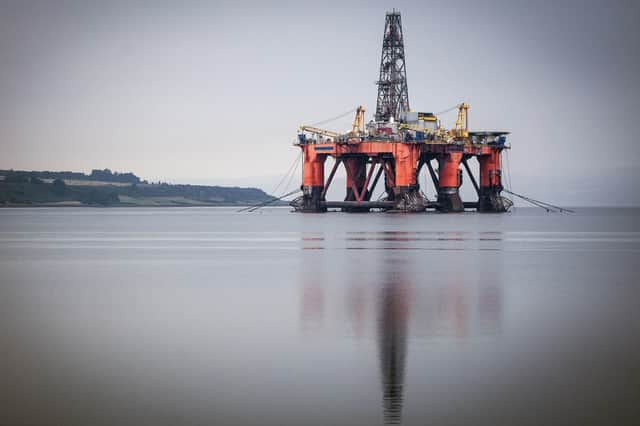Energy crisis should focus minds on reducing demand – Gina Davidson


Power cuts across the country lasted for some 18 hours and the blackouts served to focus Italians’ attention on the fact that, as a country, it relied heavily on imported energy from France, Switzerland, Austria, Slovenia and even Greece.
In fact the words “chronic dependency” were used and it emerged that something as simple as a tree falling on a Swiss line followed by the tripping of a second line was enough to bring the country to a darkened halt.
Advertisement
Hide AdAdvertisement
Hide AdThe blackout was a warning shot to Europe about the vulnerability of electricity grids everywhere, particularly as the shift to using more renewable, and therefore less reliable, energy sources was underway.
We’ve just had another one. The global gas crisis has seen the UK’s energy consumption and imports put under the microscope like never before and although there have been no blackouts the industry is rumbling with dire predictions about energy security.
Gas powers much of the UK’s electricity grid when the wind doesn’t blow and the sun doesn’t shine. But the UK’s gas production is down 28 per cent on last year, driven by maintenance and new project delays.
In particular, the maintenance of the Forties Pipeline System – the main way natural gas is imported from the North Sea to the UK mainland – resulted in the shutdown of supply from all 67 field users.
As a result of a drop in supply, gas prices have risen sharply because of concurrent increasing demand – the wind has not been kind in Scotland in recent months, while Asian demand for liquified gas has seen less availability in Europe.
Prices have shot up, small energy firms unable to weather the storm collapsed, and governmental minds already focused on Cop26 and the climate crisis have been shaken from complacency about the security of the UK’s energy system.
Without a doubt Scotland is blessed with natural renewable resources – indeed there will be times when the country makes too much energy and will need to export it. But this episode proves that weather-related energy systems are not always reliable, and importing electricity and gas will continue to be needed given the environmentally correct decisions to close coal-fired power stations.
But limiting supply of natural gas in particular – by reducing extraction in the North Sea for instance – without reducing demand is only going to increase our reliance on gas imports. So the focus for government has to shift from just how energy is produced to reducing the demand – some kind of national collective equivalent of putting on a jumper.
Advertisement
Hide AdAdvertisement
Hide AdInsulating more homes to make them energy efficient is a start, but not one which will happen for Christmas. Asking people to install heat pumps in their homes needs much more explanation and in all reality proper financial incentives.
Research has shown that homeowners want to carry out improvements but find it difficult to access advice or information. People need support and as one expert told me “sometimes handholding” to navigate what is a complex environment.
But the will is there. The current energy crisis ensures the imperative. Now we need some proper, urgent, action.
A message from the Editor:
Thank you for reading this article. We're more reliant on your support than ever as the shift in consumer habits brought about by Coronavirus impacts our advertisers.
If you haven't already, please consider supporting our trusted, fact-checked journalism by taking out a digital subscription.
Comments
Want to join the conversation? Please or to comment on this article.
